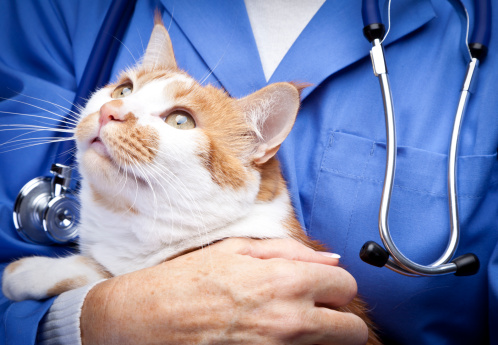Cats are fascinating creatures, beloved for their independent spirits and endearing quirks. However, ensuring they remain healthy and happy requires understanding the subtleties of their behavior. As natural masters of disguise when it comes to illness or discomfort, cats often exhibit only subtle signs that something is wrong. This guide will explore essential aspects of cat health and behavior, helping you identify potential issues early and maintain your feline’s well-being.

The Importance of Observing Cat Behavior
Cats use behavior as a primary means of communication. Changes in their usual habits can provide critical clues about their health. Whether it’s a shift in their grooming routine, eating habits, or social interactions, paying attention to these changes can make all the difference in detecting and addressing underlying health issues early.
Common Signs of Health Issues in Cats
- Changes in Eating and Drinking Habits
- Loss of appetite: Cats that suddenly stop eating could be experiencing dental problems, gastrointestinal issues, or other illnesses.
- Excessive thirst: An increase in water consumption can indicate conditions such as kidney disease or diabetes.
- Litter Box Problems
- Urinating Outside the Litter Box: This behavior often signals urinary tract infections, kidney issues, or stress-related problems.
- Diarrhea or constipation: Digestive issues or dietary changes may cause irregularities in bowel movements.
- Unusual Grooming Patterns
- Excessive Grooming: Overgrooming often leads to bald spots and can signify stress, allergies, or skin conditions.
- Neglected Grooming: A disheveled coat could indicate pain, arthritis, or other illnesses that make grooming difficult.
- Changes in Social Behavior
- Hiding: While some cats enjoy solitude, excessive hiding can be a sign of illness or fear.
- Aggression or Irritability: Sudden aggression may point to pain or discomfort.
- Physical Signs of Distress
- Limping: This may result from injury, arthritis, or neurological issues.
- Vomiting: Occasional vomiting might be due to hairballs, but frequent episodes warrant veterinary attention.
- Unusual Vocalizations
- Increased or excessive meowing can indicate distress, pain, or cognitive issues in older cats.
Key Components of Cat Health
- Nutrition
- Cats are obligate carnivores and require diets rich in protein and healthy fats. Avoid feeding them processed foods with fillers and additives.
- Ensure they have access to fresh water at all times to prevent dehydration.
- Regular Veterinary Care
- Schedule annual check-ups to catch potential issues early. Vaccinations, dental care, and parasite prevention are vital aspects of their health plan.
- Weight Management
- Obesity in cats can lead to joint problems, diabetes, and a shortened lifespan. Use portion control and encourage physical activity to maintain a healthy weight.
- Dental Health
- Regular dental check-ups are crucial, as dental disease can lead to other health problems. Consider dental treats or brushing your cat’s teeth to maintain oral hygiene.
- Mental Stimulation and Exercise
- Interactive toys, climbing structures, and play sessions keep your cat physically and mentally stimulated, reducing stress and promoting overall well-being.
- Spaying and Neutering
- Spaying or neutering your cat not only helps control the pet population but also reduces the risk of certain cancers and behavioral problems.

How to Monitor Cat Behavior for Better Health
- Establish a Routine
- Cats thrive on routine. Feeding, playtime, and grooming schedules help you notice when something seems off.
- Watch for Subtle Changes
- Keep an eye on small deviations in behavior, such as reluctance to jump, changes in vocalizations, or altered sleeping patterns.
- Use a Health Log
- Maintaining a record of your cat’s weight, eating habits, and vet visits can help you and your veterinarian track their health over time.
Addressing Behavioral Problems
Behavioral changes often stem from medical issues, environmental factors, or stress. Here’s how to address some common problems:
- Scratching Furniture
- Provide scratching posts and train your cat to use them. This satisfies their instinct to scratch while protecting your furniture.
- Litter Box Aversion
- Ensure the litter box is clean and in a quiet, accessible location. Experience different types of litter if your cat is avoiding the box.
- Aggression
- Identify triggers for aggressive behavior, such as new pets or changes in the household. Gradual introductions and stress-reduction techniques can help.
- Excessive Vocalization
- Ensure your cat’s basic needs are met and check for underlying medical issues if the vocalization persists.
Tips for Maintaining Cat Health and Behavior
- Provide a Safe and Stimulating Environment
- Cats need safe spaces to retreat and explore. Create a cat-friendly environment with plenty of hiding spots and perches.
- Regular Grooming
- Grooming not only keeps your cat’s coat healthy but also strengthens your bond. Regular brushing can prevent hairballs and reduce shedding.
- Stress Reduction
- Changes in the household can stress cats. Use pheromone diffusers and maintain a consistent routine to reduce anxiety.
- Quality Time
- Spend time playing and interacting with your cat daily. This strengthens your bond and keeps them mentally and physically engaged.
When to See a Veterinarian

Early intervention is critical for managing health issues in cats. Schedule a vet visit if you notice:
- Persistent changes in eating or drinking habits.
- Sudden weight loss or gain.
- Difficulty breathing or labored movements.
- Behavioral changes such as aggression, hiding, or lethargy.
- Vomiting, diarrhea, or other signs of gastrointestinal distress.
Conclusion
Understanding your cat’s health and behavior is key to ensuring they live a long, happy, and healthy life. By staying vigilant and proactive, you can address potential health issues early and provide an environment where your feline companion thrives. Remember, when in doubt, consult your veterinarian—they’re your best resource for maintaining your cat’s well-being.
With the right care, attention, and love, your cat will reward you with years of companionship and joy.





